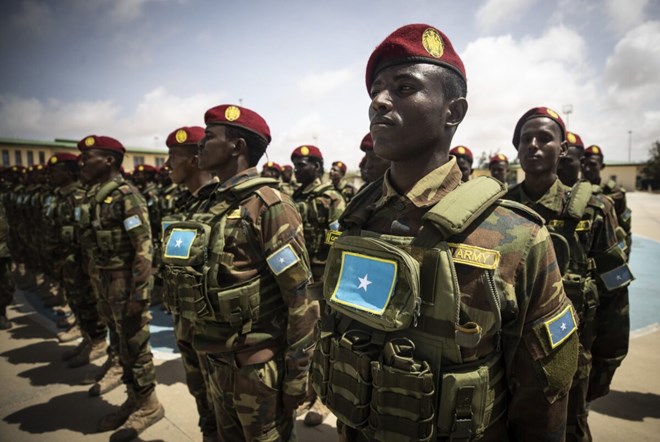
Saturday December 2, 2023

Mogadishu (HOL) — In a historic move, the United Nations Security Council unanimously agreed on Friday to lift the decades-long arms embargo on Somalia's government. This significant shift in international policy comes after 30 years since the imposition of the embargo in 1992, intended to stem weapon flow to warring factions after the fall of dictator Mohamed Siad Barre.
Reacting to this pivotal change, Somali President Hassan Sheikh Mohamud warmly embraced the U.N. Security Council's resolution. "After thirty years, Somalia regains complete autonomy in armament decisions," he stated. The president emphasized the government's commitment to responsibly manage the influx of arms, assuring a stringent oversight system. "This marks a recognition of Somalia's responsible governance," he added.
Somalia's U.N. Ambassador Abukar Dahir Osman welcomed the decision, stating, "The lifting of the arms embargo enables us to confront security threats. It also allows us to bolster the capacity of the Somali security forces by accessing lethal arms and equipment to adequately safeguard our citizens and our nation."
The Council adopted two British-drafted resolutions: one lifting the embargo on Somalia and the other reinstating it specifically against the al-Qaida-linked al-Shabab militants. This resolution, significant in its clarity, explicitly states, "There is no arms embargo on the Government of the Federal Republic of Somalia," signalling a pivotal moment for the Somali government in its efforts to combat al-Shabab insurgents, who have waged a brutal insurgency since 2006 based on their strict interpretation of Islamic Sharia law.
The Security Council's move reflects recognition of Somalia's strides in security management, aligning with the Somalia Transition Plan and national security framework. The lifting of the arms embargo is poised to significantly impact the military balance in Somalia. The Somali government, long advocating for this move, views it as a critical step towards bolstering its forces against insurgent threats, particularly from Al-Shabaab.
The resolution's adoption is a significant opportunity for Somalia, especially as the African Union Transition Mission in Somalia (ATMIS) gears up for its planned withdrawal by December 2024. Ambassador Osman reported, "Phase two drawdown of 3,000 ATMIS troops will conclude as scheduled on December 31st," adding that the Somali government is committed to fully implementing the transitioning of security responsibility to the Somali National Army.
This decision occurs against the backdrop of existing challenges in weapons and ammunition management in Somalia, as highlighted in the Secretary-General's prior evaluations. The resolution addresses concerns about the scarcity of secure ammunition storage in Somalia, urging the international community to aid in establishing and renovating such facilities. The report acknowledges progress in weapon registration but also points to hurdles in broadening these efforts and curbing the illicit arms trade.
International response to the lifting of the embargo has been mixed, reflecting diverse geopolitical interests and concerns. Anna M. Evstigneeva of the Russian Federation voiced skepticism about the efficacy of temporary sanctions in African States and called for a review. She argued that these sanctions hinder the progress of national law enforcement and security. Her delegation's recommendations, including the impact of unilateral sanctions on underdeveloped nations and the wording about automatic exceptions for private security companies, were ignored. The resolution indicates that Somalia must issue licenses, but the Council lacks a list of these firms. "We expect that Mogadishu will approach this responsibly and will not allow growing militarization," she added.
Dai Bing of China expressed confidence in Somalia's ability to strengthen security capacity-building. However, he also pointed out that the resolution still imposes specific restrictive measures and grants special exemptions to some Western countries, highlighting concerns of a double standard.
Lana Zaki Nusseibeh of the United Arab Emirates emphasized the importance of the resolution in supporting Somalia's ongoing efforts to consolidate peace, calling on the international community to create conditions for economic recovery and growth in the country.